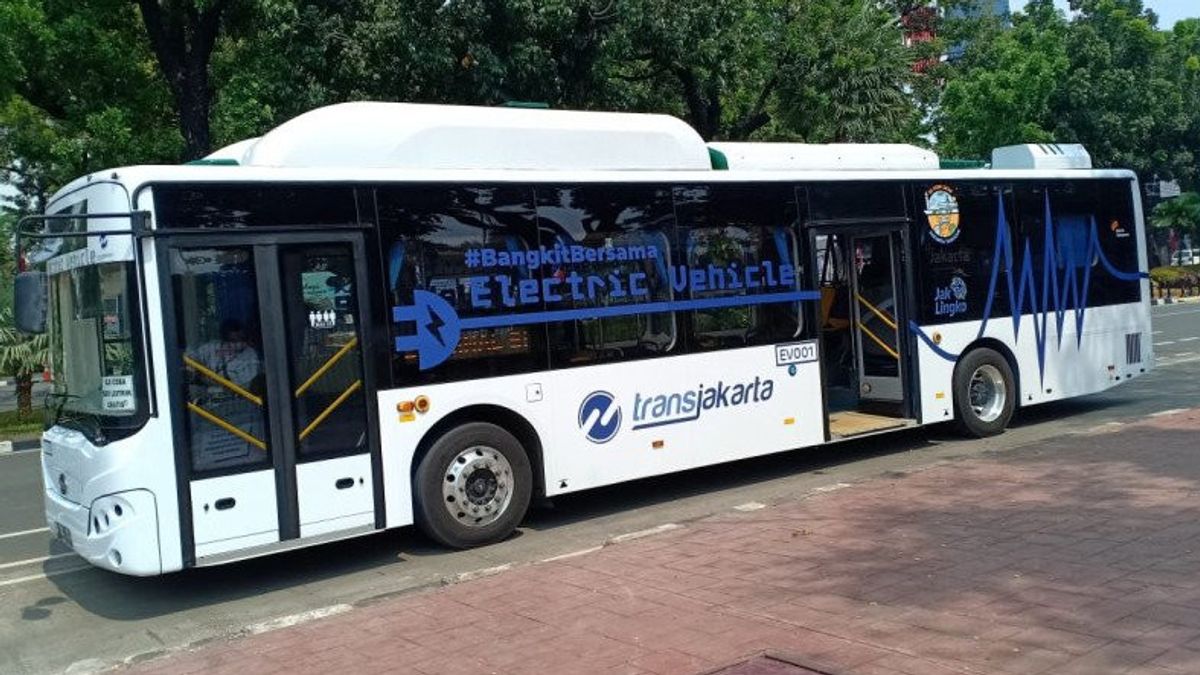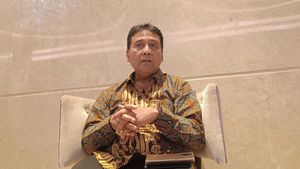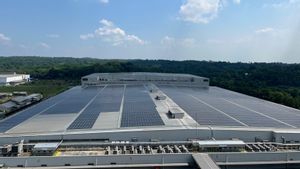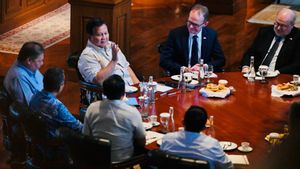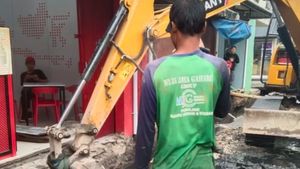JAKARTA - The Coordinating Ministry for Maritime Affairs and Investment (Kemenko Marves) said that Indonesia is ready to become a producer of electric vehicles, even though it must cooperate with other countries that already have more advanced technology.
Not only that, Indonesia also has huge reserves of raw materials in the form of nickel and cobalt to be developed into the lithium battery industry as the main component of electric vehicles.
"Of course, we don't want to be an importer of vehicles all the time, but we have to be able to produce electric vehicles. In terms of technology, Indonesia can actually master it," said the Special Advisor for the Policy on Innovation and Industrial Competitiveness of the Coordinating Ministry for Maritime Affairs and Investment Satryo Soemantri Brodjonegoro, quoted from Between, Sunday 26 July.
The government also encourages the private sector who has been importing electric vehicles to immediately build an electric vehicle factory in Indonesia by cooperating with foreign principals.
Indonesia's desire and commitment to become a producer of electric vehicles is stated in Presidential Decree Number 55 of 2019 concerning the Acceleration of the Battery Electric Vehicle Program for Road Transportation. This Perpres marks the rise of Indonesia to become a producer of electric vehicles.
According to Satryo, for the first phase, Indonesia will try to develop two things. First, developing battery-based electric motorized vehicles, and secondly developing lithium batteries as the main driving component of electric vehicles.
"It must run parallel. Development of vehicles and batteries, a common road," he said.
He explained that the development of the electric vehicle battery industry needs to be realized immediately, because Indonesia actually has huge reserves of nickel and cobalt raw materials, even the largest in the world.
"Therefore, we offer it to countries that are more advanced in this industrial sector to work together. The government has formed a team to prepare the development of the lithium battery industry," he said.
In parallel, Indonesia also invites foreign investors to build electric vehicle factories in the country.
"There are already some who are interested in investing. We certainly want to not only buy electric vehicles but also benefit from technology transfer so that in the long run Indonesia can become a producer of electric vehicles," he said.
Satryo said there were three aspects to be achieved with the issuance of the Presidential Decree. First, want to create a clean environment.
"Electric vehicles no longer use fossil fuels but use lithium batteries, the emissions are zero. So there is no air pollution," he said.
In addition, the government is trying to suppress imports of fuel oil (BBM). The government also wants Indonesia to become a country in the electric vehicle industry because it has potential, with broad market support and very high mobility.
Assistant Deputy for Infrastructure Support for the Coordinating Ministry for Maritime Affairs and Investment, Firdausi Manti, added that the government supports the private sector in importing electric vehicles, but hopes there will be technology transfer from foreign principals. He is of the opinion that in an era like this, it is impossible for Indonesia to walk alone in developing technology, it must collaborate with other countries that have electric vehicle technology.
"Indonesia can become a global supply chain player for batteries for electric vehicles. A global supply chain in the electric vehicle industry is needed, where countries can complement each other's spare parts. For example, Indonesia has the largest nickel reserves in the world, considering nickel can be one of the makers of car batteries. electricity, "he said.
Coordinating Minister for Maritime Affairs and Investment Luhut Binsar Pandjaitan on one occasion said Saturday, July 25 that the downstreaming of nickel that is being carried out by the government could make Indonesia a major player in the world of lithium batteries.
Indonesia, said Luhut, will continue to encourage the development of lithium batteries for electric vehicles, considering that in 2030 countries in Europe will make all electric-based vehicles a requirement.
In addition to Indonesia being a major player in the world of lithium battery raw materials, the use of electric vehicles also has an impact on reducing oil imports due to the reduction in fossil energy-based vehicles.
[/ read_more]
Private CommitmentsThe private sector has welcomed the government's commitment to develop the electric vehicle industry. PT Bakrie Autoparts, the brand holder agent (APM) of BYD electric buses in Indonesia, stated its commitment to follow the policies outlined by the government.
The industrialization process will be carried out to increase local content. "Currently we are importing CBU electric buses or in their intact condition, but only for promotion and testing," said Dino A. Riyandi, President Director of PT Bakrie Autoparts.
PT Bakrie Autoparts and BYD Auto Co. Ltd. has agreed on the stages of development and production of electric buses in the next few years. The first stage is importation and product performance, after that, market penetration.
"Here, we began to explore the commercial and manufacturing stages by cooperating with several local car body company partners. In the next stage we began to industrialize by operating our electric bus production facilities, including chassis production. The target is, 2022 has to enter this stage, starting from. producing 300 units of electric buses per year with a domestic content level of at least 55 percent, "said Dino, adding that his company wanted to become a pioneer in the electric bus industry in Indonesia.
Meanwhile, PT Bluebird Tbk, which has been one of the users of electric vehicles for its taxi fleet, also expressed its support. Director of Bluebird, Tbk, Andre Djokosoetono, said that currently his company uses 25 units of E-Bluebird and 4 units of E-Silverbird which are electrically powered.
"For the E-Bluebird, we use the BYD e6 from China. Meanwhile, the E-Silvebird uses the Tesla Model X75D from the United States. We are very satisfied with the operation of the E-Bluebird and E-Silverbird electric vehicles. The driver and consumer response is very good. The car is very good. "They rarely experience problems on the road, are able to travel reliable distances. Consumers also appreciate Bluebird's pioneering steps and making breakthroughs in bringing electric taxis," said Andre.
He is optimistic that electric vehicles can be the right option for the transportation industry in Indonesia.
[/ read_more]
The English, Chinese, Japanese, Arabic, and French versions are automatically generated by the AI. So there may still be inaccuracies in translating, please always see Indonesian as our main language. (system supported by DigitalSiber.id)
